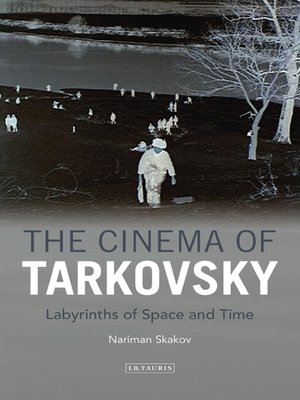The Cinema of Tarkovsky
ebook ∣ Labyrinths of Space and Time · KINO--the Russian and Soviet Cinema
By Nariman Skakov

Sign up to save your library
With an OverDrive account, you can save your favorite libraries for at-a-glance information about availability. Find out more about OverDrive accounts.
Find this title in Libby, the library reading app by OverDrive.



Search for a digital library with this title
Title found at these libraries:
| Library Name | Distance |
|---|---|
| Loading... |
The phenomenon of time was a central preoccupation of Tarkovsky throughout his career. His films present visions of time by temporal means - that is, in time. Tarkovsky does not represent time through coherent argument, Nariman Skakov proposes, rather he presents it and the viewer experiences the argument. This book explores the phenomenon of spatio-temporal lapse in Tarkovsky's cinema - from Ivan's Childhood (1962) to Sacrifice (1986). Dreams, visions, mirages, memories, revelations, reveries and delusions are phenomena which present alternative spatio-temporal patterns; they disrupt the linear progression of events and create narrative discontinuity. Each chapter is dedicated to the discussion of one of Tarkovsky's seven feature films and in each, one of these phenomena functions as a refrain. Skakov discusses the influence of the flow of and lapses in space and time on the viewer's perception of the Tarkovskian cinematic universe.
He opens and closes his original and fascinating book on Tarkovsky's cinema by focusing on the phenomenon of time that is discussed extensively by the filmmaker in his main theoretical treatise Sculpting in Time, as well as in a number of interviews and public lectures.
He opens and closes his original and fascinating book on Tarkovsky's cinema by focusing on the phenomenon of time that is discussed extensively by the filmmaker in his main theoretical treatise Sculpting in Time, as well as in a number of interviews and public lectures.







